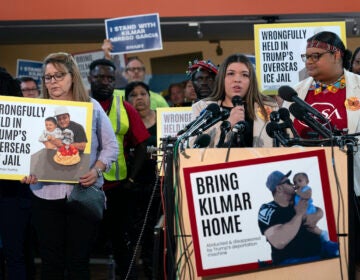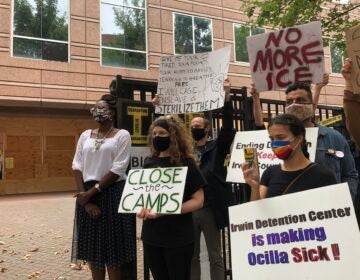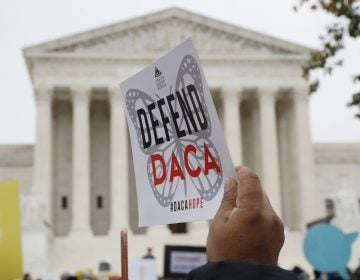Philly pilots program to pay for some detained immigrants’ legal defense
Philadelphia and the Vera Institute of Justice launched a one-year pilot program offering pro bono legal support to low-income immigrants facing deportation.
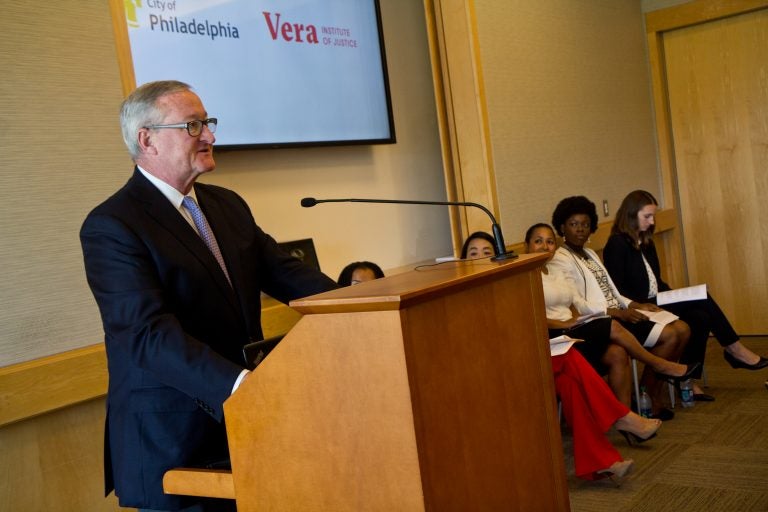
Philadelphia Mayor Jim Kenney voices support for the expansion of the SAFE Network to Philly, where it will offer legal representation for immigrants facing deportation. (Kimberly Paynter/WHYY)
In immigration court, the government always has a lawyer — but far fewer than half of all defendants do.
Now, the city of Philadelphia, along with the Vera Institute of Justice, has launched a one-year pilot program offering pro bono legal support on a first-come, first-served basis to low-income immigrants facing deportation.
“Philadelphia has emerged as a fearless leader in local response to shifting immigration policy and federal immigration enforcement,” Mayor Jim Kenney said Tuesday during the announcement at the National Constitution Center. “This new deportation defense fits in with other pro-immigrant policies we embrace and continue to advance.”
Vera and the city have ponied up $100,000 apiece to support two pro bono attorneys: one with the Pennsylvania Immigration Resource Center in York, Pa., and one with Nationalities Service Center in Philadelphia. Each is expected to carry a caseload of roughly 30 clients. The program, called the Safety and Fairness for Everyone Network is in the process of recruiting funders to continue offering legal services in Pennsylvania beyond the one-year mark.
The new initiative will focus on some of the most difficult cases — those in which immigrants have already been arrested by U.S. Immigration and Customs Enforcement (ICE), and must go through their legal process from inside a network of detention facilities scattered across Pennsylvania.
Those hearings take place at an immigration court located at the York County Prison, which had 535 cases pending as of May 2019, according to the Transactional Records Access Clearinghouse at Syracuse University.
Nationally, fewer than one in five immigrants manages to get an attorney in detention, according to the American Immigration Counsel. Without legal representation, immigrants in detention are half as likely to win their cases.
“The lack of an attorney should not be the only thing that separates a local resident from their family, from their community, and from life itself,” said City Councilwoman-at-large Helen Gym. “We’ve seen 11-year-olds go up against a federal prosecutor without the right to an attorney.”

Headlines from recent days also weighed on attendees’ minds.
Kenney added his voice to the outcry over comments made by President Donald Trump on Twitter over the weekend suggesting that four congresswomen who are U.S. citizens should go back to the “crime-infested” countries they came from.
“If Donald Trump ever has to go back to where he came from, he’s going to have to go back to hell,” said Kenney, veering away from planned remarks.
Others spoke of the supposed immigration raids Trump promised would start on Sunday, but which have largely not come to pass.
“Immigrants all around the nation are living lives full of fear because they’ve been told that the government is going to come after them this week,” said Kica Matos, director of the Center on Immigration and Justice at the Vera Institute of Justice.
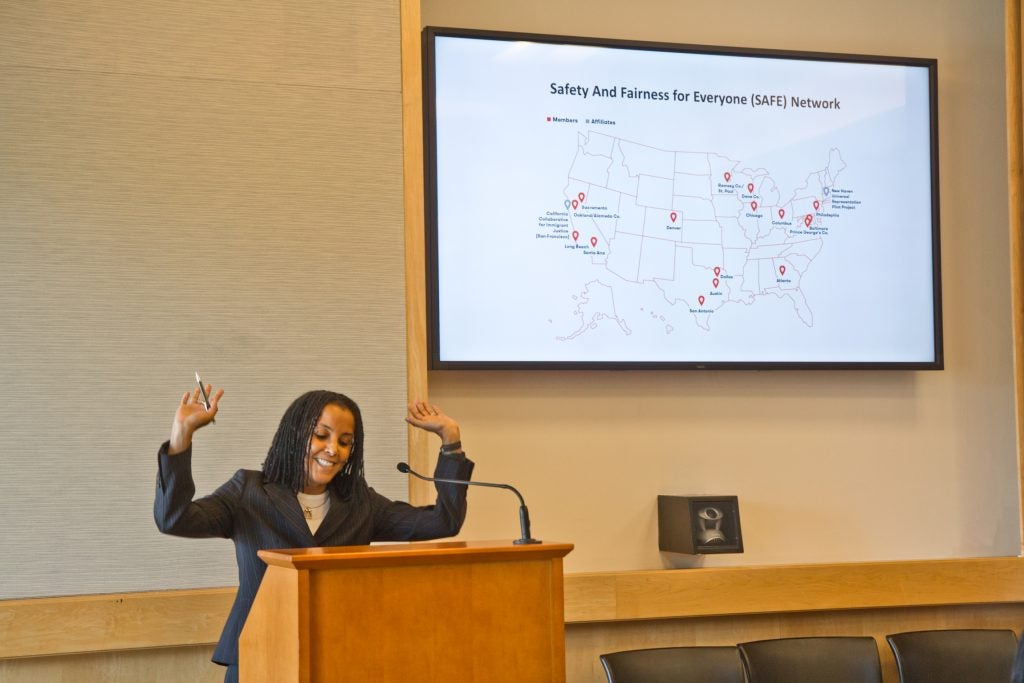
The SAFE Network, which operates in 18 locations, will add to the small number of immigration attorneys already offering low-cost representation for immigrants based in Philadelphia.
Lea Dezai Epse Wanhi, from the Ivory Coast, credits her pro bono attorney with reuniting her family.

At Tuesday’s press conference, she gripped the podium and her voice shook as she described fleeing a forced marriage and pressure to undergo female circumcision before coming to the U.S., only to be arrested while waiting on the results of her asylum application in Philadelphia.
“She didn’t promise we will win, but she did say we will work together,” Wanhi said of attorney Rebecca Hufstader. In fall 2018, Wanhi went before a judge while she was detained, and was granted asylum. She later regained custody of her son and paid a bond so her husband could also be released from immigration jail.
“[Rebecca] gave us hope, and made us feel like it would be possible to be happy and have a good life,” said Wanhi.
WHYY is your source for fact-based, in-depth journalism and information. As a nonprofit organization, we rely on financial support from readers like you. Please give today.


